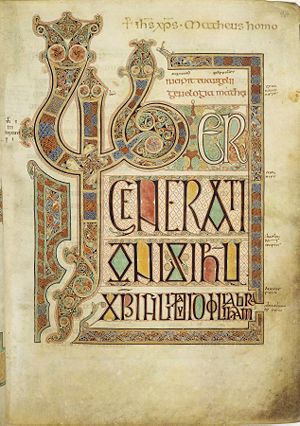anglo-Saxon England
Anglo-Saxon England
Anglo-Saxon England or Early Medieval England, existing from the 5th to the 11th centuries from soon after the end of Roman Britain until the Norman Conquest in 1066, consisted of various Anglo-Saxon kingdoms until 927, when it was united as the Kingdom of England by King Æthelstan (r. 927–939). It became part of the short-lived North Sea Empire of Cnut, a personal union between England, Denmark and Norway in the 11th century. The Anglo-Saxons migrated to Britain (Pretanī, Prydain) from mainland northwestern Europe after the Roman Empire withdrawal from the isle at the beginning of the 5th century. Anglo-Saxon history thus begins during the period of sub-Roman Britain following the end of Roman control, and traces the establishment of Anglo-Saxon kingdoms in the 5th and 6th centuries (conventionally identified as seven main kingdoms: Northumbria, Mercia, East Anglia, Essex, Kent, Sussex, and Wessex); their Christianisation during the 7th century; the threat of Viking invasions and Danish settlers; the gradual unification of England under the Wessex hegemony during the 9th and 10th centuries; and ending with the Norman Conquest of England by William the Conqueror in 1066. The Normans persecuted the Anglo-Saxons and overthrew their ruling class to substitute their own leaders to oversee and rule England. However, Anglo-Saxon identity survived beyond the Norman Conquest, came to be known as Englishry under Norman rule, and through social and cultural integration with Romano-British Celts, Danes and Normans became the modern English people. (Full article...) Selected article
Bald's Leechbook is an Old English medical text that was probably compiled in the 9th century, possibly under the influence of Alfred the Great's educational reforms. It takes its name from a Latin verse colophon at the end of the second book, which begins Bald habet hunc librum Cild quem conscribere iussit, meaning "Bald owns this book which he ordered Cild to compile." (more...) Did you know?
SubcategoriesSelected image Folio 27r from the Lindisfarne Gospels contains the incipit from the Gospel of Matthew. The Lindisfarne Gospels (now kept in the British Library) is an illuminated manuscript gospel book produced around the year 700. Selected biography
Cnut the Great (Old Norse: Knútr inn ríki; c. 985 or 995 – 12 November 1035), also known as Canute, was a king of Denmark, England, Norway and parts of Sweden. After the death of his heirs within a decade of his own and the Norman conquest of England in 1066, his legacy was largely lost to history. Cnut was of Danish and Slavic descent. His father was Sweyn Forkbeard, King of Denmark and his mother was the daughter of the first duke of the Polans, Mieszko I. Cnut won the throne of England in 1016 in the wake of centuries of Viking activity in northwestern Europe. His accession to the Danish throne in 1018 brought the crowns of England and Denmark together. Cnut held this power-base together by uniting Danes and Englishmen under cultural bonds of wealth and custom, rather than sheer brutality. After a decade of conflict with opponents in Scandinavia, Cnut claimed the crown of Norway in Trondheim in 1028. He had coins struck which called him king there, but there is no narrative record of his occupation. Cnut's possession of England's dioceses and the continental Diocese of Denmark was a source of great leverage within the Church, gaining notable concessions from Pope Benedict VIII, and his successor John XIX, such as one on the price of the pallium of his bishops. Cnut also gained concessions on the tolls his people had to pay on the way to Rome from other magnates of medieval Christendom, at the coronation of the Holy Roman Emperor. (more...) Things you can do
Featured articles and lists
Related portalsWikiProjects
Associated WikiThe following Wiki Foundation sister projects provide more on this subject: Purge server cache | |||||||||||||||||||
This article uses material from the Wikipedia English article Portal:Anglo-Saxon England, which is released under the Creative Commons Attribution-ShareAlike 3.0 license ("CC BY-SA 3.0"); additional terms may apply (view authors). Content is available under CC BY-SA 4.0 unless otherwise noted. Images, videos and audio are available under their respective licenses.
®Wikipedia is a registered trademark of the Wiki Foundation, Inc. Wiki English (DUHOCTRUNGQUOC.VN) is an independent company and has no affiliation with Wiki Foundation.





